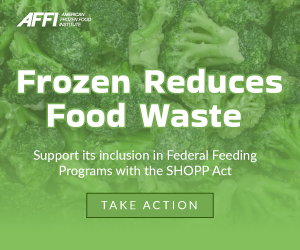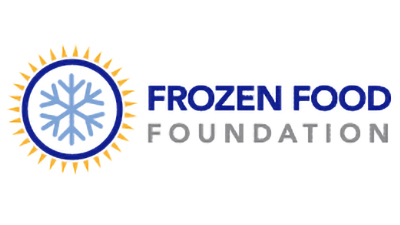October 16, 2020
Arlington, VA – The American Frozen Food Institute (AFFI) announces the publication of a new manuscript, “Alternative Approaches to the Risk Management of Listeria monocytogenes in Low Risk Foods,” now available online in Food Control, an international scientific journal for food safety and process control professionals.
The manuscript represents the proceedings and recommendations of AFFI’s Listeria monocytogenes (Lm) International Expert Panel, comprised of eminent researchers in Listeria science, epidemiology, risk modeling, food microbiology, and regulatory and public health policy. AFFI assembled the expert panel in December 2018 as part of its efforts to merge available Lm research and data with the most recent scientific thinking on regulatory policies governing the prevalence of Lm in foods. The panel set out with the objective to develop a scientific basis and rationale for Lm regulatory policies.
“The frozen food industry is committed to advancing food safety practices to prevent and control Listeria monocytogenes,” said AFFI President and CEO Alison Bodor. “We’re grateful for the insights and guidance from the Lm International Expert Panel and believe their new recommendations should guide practical and sustained approaches to Listeria regulatory policy that improve public health.”
Key elements of the manuscript include discussions on:
- The importance of using risk-based approaches to regulate the presence of Lm across the broad category of ready-to-eat foods.
- The benefits of policies that acknowledge the ubiquity of Lm and encourage finding and destroying, controlling cross contamination and preventing growth of the pathogen.
- A framework to facilitate further reduction of public health impact relative to Lm by expending limited resources (almost solely) on high-risk foods.
- Establishing a regulatory action level for low-risk foods, particularly where foods do not support growth of Lm.
- Alternate sampling and testing protocols to address Lm
- Effective testing by industry of low-risk foods to better protect public health.
This latest publication furthers AFFI’s commitment to raising the bar on food safety practices to help prevent and control Lm. AFFI has undertaken numerous efforts to advance understanding of Lm through scientific research, innovation, education and training, including launching the AFFI Food Safety Zone.




